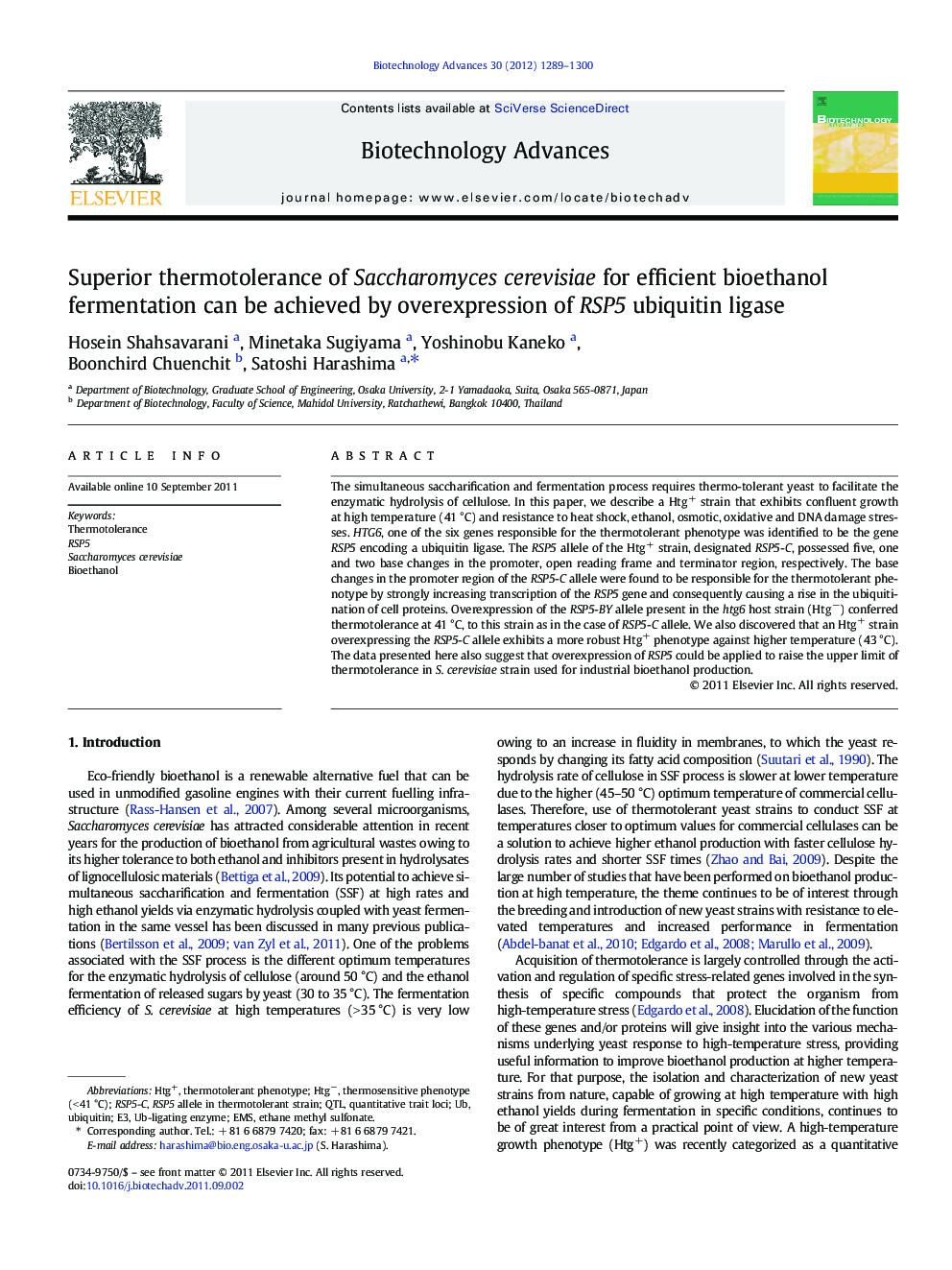| Article ID | Journal | Published Year | Pages | File Type |
|---|---|---|---|---|
| 6486724 | Biotechnology Advances | 2012 | 12 Pages |
Abstract
The simultaneous saccharification and fermentation process requires thermo-tolerant yeast to facilitate the enzymatic hydrolysis of cellulose. In this paper, we describe a Htg+ strain that exhibits confluent growth at high temperature (41 °C) and resistance to heat shock, ethanol, osmotic, oxidative and DNA damage stresses. HTG6, one of the six genes responsible for the thermotolerant phenotype was identified to be the gene RSP5 encoding a ubiquitin ligase. The RSP5 allele of the Htg+ strain, designated RSP5-C, possessed five, one and two base changes in the promoter, open reading frame and terminator region, respectively. The base changes in the promoter region of the RSP5-C allele were found to be responsible for the thermotolerant phenotype by strongly increasing transcription of the RSP5 gene and consequently causing a rise in the ubiquitination of cell proteins. Overexpression of the RSP5-BY allele present in the htg6 host strain (Htgâ) conferred thermotolerance at 41 °C, to this strain as in the case of RSP5-C allele. We also discovered that an Htg+ strain overexpressing the RSP5-C allele exhibits a more robust Htg+ phenotype against higher temperature (43 °C). The data presented here also suggest that overexpression of RSP5 could be applied to raise the upper limit of thermotolerance in S. cerevisiae strain used for industrial bioethanol production.
Keywords
Related Topics
Physical Sciences and Engineering
Chemical Engineering
Bioengineering
Authors
Hosein Shahsavarani, Minetaka Sugiyama, Yoshinobu Kaneko, Boonchird Chuenchit, Satoshi Harashima,
